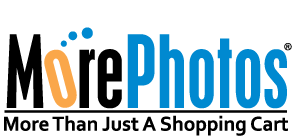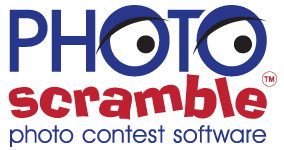Today's Guest: Enrico Schaefer
Today's Host: John Bentley
January 2008
 Listen to this Show
Listen to this Show Publish this Show on Your Website
Publish this Show on Your Website Show Sponsor www.traverselegal.com
Show Sponsor www.traverselegal.com Defining Cybersquatting
Defining Cybersquatting
 Enrico Schaefer Transcript Page
Enrico Schaefer Transcript Page
 Enrico Schaefer Expert Page
Enrico Schaefer Expert PageANNOUNCER: Today's program is sponsored by Traverse Legal, PLC, a law firm specializing in internet law, domain disputes, and technology company representation. That's Traverse Legal, www.traverselegal.com. Welcome to VTalk Radio Tech Spotlight, with your host, John Bentley.
JOHN: Today we are in the studio with Enrico Schaefer of Traverse Legal and you're listening to VTalk Radio's Tech Spotlight. Welcome to the program, Enrico.
ENRICO: Thanks, John. Thanks for having me today.
JOHN: Hey we're talking about cybersquatting today. What the heck is cybersquatting?
ENRICO: Well John, cybersquatting according to the US Federal law known as Anti-Cybersquatting Consumer Protection Act; it's defined as the registering and trafficking in or using a domain name with a bad faith intent to process from the good will of a trademark belonging to someone else and that's the legal jargon in layman's terms it's stealing someone's domain name so that you can divert their profits and traffic.
JOHN: Well who are the cybersquatters out there?
ENRICO: Cybersquatters come in all shapes and sizes. Essentially we get cybersquatters who are competitors so you've got Joe's Hardware Store and they own the domain name joeshardwarestore.com. The competitor, Pete, down the road who own's Pete's Hardware Store and has registered the domain name petesardwarestore.com decides that Joe's doing too much online traffic. So what does he do? He registers a domain name called joeshardwarestore.com or typographical error of that hardware store and he perhaps registers the domain name joeshardwarestore.net or .org, and he essentially registers a bunch of versions of Joe's trademark as a domain name. And what happens there is that he now starts to get traffic onto his website Pete's Hardware Store diverting it from Joe. So consumers who are actually looking for Joe's hardware store might very well end up at Pete's Hardware Store. So sometimes you get competitors who actually try and divert traffic from another key competitor. You also have domainers and domainers are actually professional domain name profiteers, and what they do is they buy, sell and monetize internet domain names. They basically register domain names that they think are going to be worth a lot of money some day, or that divert someone else's traffic. In most of these instances for the domainers, they don't have any actual intent to use the domain name, they either are trying to realize value from that domain by selling it again to a third party or divert traffic to them where they have a website up with Ad Word. The problem comes up when they actually register a domain name using someone else's trademark. You get some domainers who are less then ethical. For instance registering different versions of the word Microsoft plus another word like Microsoftexcelspreadsheet.com and, of course, Microsoft owns the trademark for the word Microsoft and the word Excel so no one else is allowed. Just because that domain name is available through Network Solutions doesn't mean that you can legally register it, but domainers who are cybersquatters they will actually register those domains in order to divert traffic from Microsoft. There's also a category of cybersquatters who are domain as domain tasters. And what happens is when you register a domain name you've got five days to try out that domain and get your money back if you don't want it. ICANN developed that system thinking it would be a good idea, but what they failed to realize is that some domainers and domain tasters would simply pick up all of the lapsed registrations, the expired registrations. They'd pick them all up and then they would taste them for five days and see which ones have traffic. They keep the ones with traffic and they let the other ones go and it creates a big mess in cyberspace because a lot of those domains that they're tasting are in fact owned by trademark owners that may have just inadvertently allowed the domain to lapse or what have you. So domain tasting is currently a huge problem on the internet.
JOHN: Are there any other cybersquatters out there stealing domain names?
E: You know, there are pornography companies that engage in domain tasting in order to divert traffic to their pornography sites and then, of course, there's just the every day, Joe; the college student or housewife who decides that they are going to register a domain of a brand knowing that they are, in fact, trying and intending to divert traffic from a famous brand or trademark name, but simply not knowing it's illegal. And so you get an awful lot of folks out there who would plead ignorance of the law and yet have stepped directly into the cybersquatting role.
JOHN: Why should a company care if their website is being cybersquatted, Enrico?
E: Well cybersquatting is a bad deal and some companies say, hey look I've got my domain joeshardwarestore.com, why should I care if someone registers the .net or the .org or creates the singular joehardwarestore.com or joeshardware.com. Why should I care if people are cybersquatting on my domain, and the answer is because lookit if you've got trademark rights and your branded, your company has got good will and virtually everyone's company has goodwill associated with it. For Traverse Legal, we've put a lot of time and effort to create this great company called Traverse Legal, and that brand means something. People know that we're a high end, high tech, high charging law firm. Well if I let someone else put a domain out there that infringes on Traverse Legal and my potential customers go to that domain, that's a big problem. If I have trademark rights, those trademark rights need to be protected. If I don't protect my own trademark rights, I could potentially lose those rights altogether. The other reason is that trademarks add value to your company. In today's world intangible property, intellectual property, trademarks, copyrights, these are becoming far more valuable then they were even ten years ago. And so if you go to sell your company someday, a good chunk of money could be attributed to simply the good will through your trademark if you've registered your trademark with the trademark office and protected that trademark over time. If you don't protect your trademark, John, you lose it. So, the other reasons involved that, you know, it's obvious, if someone is diverting traffic from your site, they're diverting customers. They're diverting potential revenue that could be coming to your site. So diverting traffic is going to cost you money. Also those infringing sites could contain pornographic material, could send people directly to your competitors, and certainly will cause confusion amongst your customer base. They're going to make your company look bad, John, and that's a big problem and that will cost you money.
JOHN: Well it's certainly important to know this kind of information. What should someone do if they're a victim of cybersquatting or domain theft?
ENRICO: Well if they realize that they're a victim of cybersquatting, and most companies don't realize it, but if you come across the website that is infringing on your domain, what you need to do is contact an attorney, because this is a complicated area of law. There are very specific steps that you need to engage in, and there are things that you should and should not do. And too many times we get calls from companies who have already tried to handle the matter themselves and essentially they've gone backward and they've taken away some of the legal arguments we could otherwise make, or they've scared away the cybersquatter and done it in a way that puts us at a disadvantage in trying to represent them. So contact an attorney and they will help you deal with the situation. We typically file threat letters or UDRP Uniform Domain Name Dispute Resolution Policy Proceedings, or you could actually go to court under the Anti-cybersquatting Protection Act and sue in federal court. The decision as to whether or not to go after someone who is cybersquatting on your domain is really a return on investment decision. And the analysis goes like this, John. If I'm a company and there's someone who is diverting traffic to a competitor, how much business am I losing every single year as a result of that? If I'm losing $10,000 or $20,000 or $100,000 worth of business every year, by going through a UDRP proceeding and getting control of that domain, you're going to quickly pay for the attorney and transactional fees you incurred in order to get that domain. Not only that, but you're going to own a potentially valuable domain, you're going to increase the value of your intellectual property, you'll have protected your trademark rights, so the return on investment in many instances is very quick and very immediate, and you're going to see money on the money you spend. By the way, John, we do offer a free cybersquatting report if someone out there is wondering whether or not they have any cybersquatters sitting on their domain.
JOHN: How do they get to that report?
ENRICO: Well they come to traverselegal.com, they click on the "contact an attorney" button, they request a free report, and we will prepare and send them a report for free identifying potential infringers on their domain or giving them the all clear sign.
JOHN: Great, great. Well Enrico, I want to thank you for joining us today on VTalk Radio's Tech Spotlight and filling us in on this important issue of cybersquatting.
ENRICO: No problem, John, it was a pleasure.
JOHN: You have been listening to VTalk Radio's Tech Spotlight. Today we've been in the studio with Enrico Schaefer of Traverse Legal. I'm you're host, John Bentley, I want to thank you for joining us. Everybody have a great afternoon.
ANNOUNCER: Today's program is sponsored by Traverse Legal, PLC, a high tech law firm providing international representation in business, technology, intellectual property, and complex litigation matters. You can contact Traverse Legal through its website at www.traverselegal.com.
ANNOUNCER: You have been listening to the VTalk Radio Tech Spotlight. Only on vtalkradio.com; radio for the 21st century.
 go to top of the page
go to top of the page







